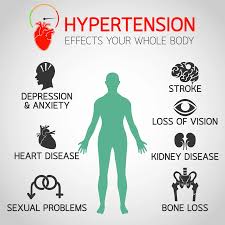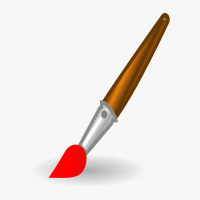How to Control High Blood Pressure Naturally and Effectively

Strong 8k brings an ultra-HD IPTV experience to your living room and your pocket.
Hypertension, commonly known as high blood pressure, is a widespread health condition where the force of blood against the artery walls remains consistently high. It is often referred to as the "silent killer" because it usually does not present noticeable symptoms, yet it significantly increases the risk of life-threatening complications such as heart disease, stroke, kidney failure, and vision problems. According to the World Health Organization (WHO), hypertension affects millions of people worldwide, making it one of the most significant public health concerns. While it may develop gradually over time, it is a manageable condition with proper lifestyle modifications and, in some cases, medical intervention. Understanding the causes, effects, and prevention strategies for hypertension is essential for maintaining long-term health and well-being.
Causes of Hypertension
Hypertension is classified into two types: primary (essential) hypertension and secondary hypertension. Primary hypertension develops over time without a specific cause and is influenced by factors such as aging, genetics, and lifestyle choices. It accounts for about 90–95% of all hypertension cases. On the other hand, secondary hypertension is caused by underlying medical conditions, such as kidney disease, thyroid disorders, hormonal imbalances, or the use of certain medications like birth control pills or decongestants.
Several risk factors contribute to the development of hypertension:
Genetics: A family history of high blood pressure increases the likelihood of developing the condition.
Unhealthy Diet: Consuming high amounts of salt, processed foods, saturated fats, and added sugars can elevate blood pressure levels.
Lack of Physical Activity: A sedentary lifestyle weakens the cardiovascular system, leading to poor circulation and increased strain on the heart.
Obesity: Excess body weight increases the workload on the heart and blood vessels, making it harder to regulate blood pressure.
Smoking and Alcohol Consumption: Both smoking and excessive alcohol intake contribute to blood vessel damage and raise blood pressure.
Chronic Stress: Long-term stress leads to frequent spikes in blood pressure, which, over time, may contribute to hypertension.
Medical Conditions: Conditions such as diabetes, kidney disease, and sleep apnea can increase the risk of hypertension.
Understanding these risk factors is the first step in preventing and managing high blood pressure. Lifestyle adjustments and medical supervision can help individuals maintain healthy blood pressure levels.
Effects of Hypertension
Hypertension can have severe consequences on various organs in the body. If left untreated, it can lead to long-term complications, including:
Heart Disease and Stroke: High blood pressure forces the heart to work harder, leading to an increased risk of heart attacks, heart failure, and strokes due to artery blockages or weakened blood vessels.
Kidney Damage: Hypertension can cause narrowing of the arteries in the kidneys, reducing their ability to filter waste efficiently, eventually leading to kidney failure.
Vision Loss: Increased blood pressure can damage the small blood vessels in the eyes, leading to vision problems or, in severe cases, blindness.
Cognitive Decline: Studies have shown that uncontrolled hypertension can contribute to memory loss, dementia, and other cognitive impairments due to reduced blood flow to the brain.
Aneurysm: Persistent high blood pressure can weaken blood vessel walls, leading to the formation of aneurysms, which can be life-threatening if they rupture.
Since hypertension often does not show symptoms, regular blood pressure checks are necessary to detect and manage it before complications arise.
How to Prevent and Manage Hypertension
1. Adopt a Healthy Diet
A balanced diet plays a crucial role in preventing and managing high blood pressure. The DASH (Dietary Approaches to Stop Hypertension) diet is widely recommended for individuals with hypertension. This diet emphasizes:
More fruits, vegetables, and whole grains
Lean proteins such as poultry, fish, and legumes
Low-fat dairy products
Reduced sodium intake (less than 2,300 mg per day, ideally below 1,500 mg)
Limited processed foods, red meat, and sugary beverages
A diet rich in potassium, magnesium, and fiber helps maintain normal blood pressure levels. Reducing salt intake can prevent fluid retention and excessive pressure on blood vessels.
2. Engage in Regular Physical Activity
Regular exercise strengthens the heart and improves circulation, helping lower blood pressure. Some recommended physical activities include:
Brisk walking
Jogging
Cycling
Swimming
Strength training
The American Heart Association (AHA) suggests at least 150 minutes of moderate-intensity exercise per week or 75 minutes of vigorous exercise for optimal heart health.
3. Maintain a Healthy Weight
Being overweight increases the risk of hypertension, as excess fat can cause the heart to pump harder. Losing even 5–10% of body weight can significantly improve blood pressure levels. Combining a healthy diet with regular exercise is the best approach to achieving and maintaining a healthy weight.
4. Manage Stress
Chronic stress can contribute to high blood pressure by triggering unhealthy coping mechanisms such as overeating, smoking, or excessive drinking. Stress management techniques include:
Meditation and deep breathing exercises
Spending time in nature
Engaging in hobbies and relaxation activities
Prioritizing adequate sleep (7–9 hours per night)
5. Limit Alcohol and Avoid Smoking
Excessive alcohol consumption raises blood pressure levels and can interfere with blood pressure medications. It is recommended to limit alcohol intake to one drink per day for women and two for men. Smoking damages blood vessels, making hypertension worse, and should be completely avoided.
6. Monitor Blood Pressure Regularly
Routine blood pressure checks help track progress and detect hypertension early. Home monitoring devices make it easier to keep track of blood pressure levels between doctor visits.
7. Medication for Hypertension
If lifestyle changes are not enough to control hypertension, medical treatment may be required. Doctors may prescribe antihypertensive medications, including:
Diuretics: Help remove excess sodium and water from the body.
Beta-Blockers: Reduce heart rate and lower blood pressure.
ACE Inhibitors: Relax blood vessels by reducing the production of angiotensin.
Calcium Channel Blockers: Prevent arteries from tightening.
Medications are often prescribed based on individual health conditions, and adherence to the treatment plan is crucial for effective blood pressure management.
When to Seek Medical Help
Individuals should seek immediate medical attention if they experience symptoms such as:
Severe headaches
Chest pain
Shortness of breath
Blurred vision
Sudden dizziness or fainting
These could be signs of a hypertensive crisis, requiring urgent medical intervention.
Note: IndiBlogHub features both user-submitted and editorial content. We do not verify third-party contributions. Read our Disclaimer and Privacy Policyfor details.


